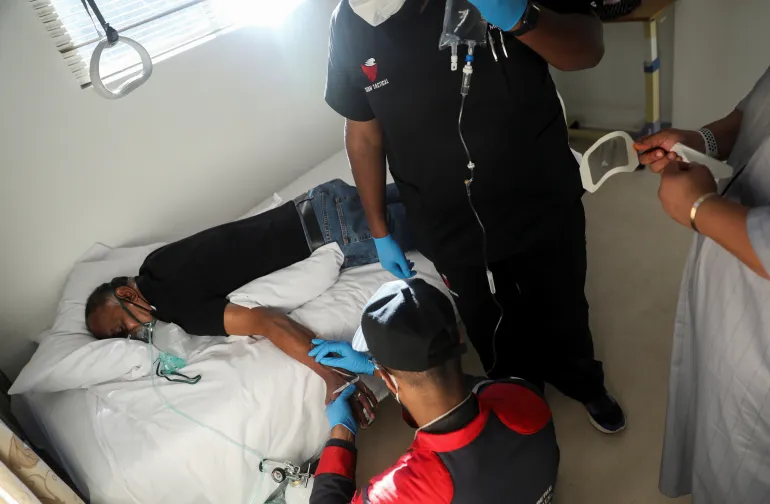In Africa, where access to quality healthcare remains a significant challenge for over half of its 1.2 billion inhabitants, innovative startups are emerging to bridge the gap.

In Africa, where access to quality healthcare remains a significant challenge for over half of its 1.2 billion inhabitants, innovative startups are emerging to bridge the gap.
Ayotunde Omitogun, who suffered from an untreated heart condition, faced a medication scarcity exacerbated by the COVID-19 pandemic. Her search for an alternative led her to Famasi Africa, a Nigerian health tech startup founded in 2020. This company focuses on digitizing the delivery of medications and routine check-ups, exemplifying a new generation of startups aiming to revolutionize healthcare in Africa.
The deficiency in accessible healthcare primarily stems from underfunding in the sector. Nigeria, for instance, allocated only 1.58 trillion naira ($2 billion) to healthcare this year, falling short of the 15 percent commitment made by African leaders in the 2001 Abuja Declaration. This leads to critical infrastructure shortages in government hospitals and often leaves patients unattended due to frequent strikes by medical personnel.
Africa’s ratio of health workers to population is significantly below global standards, with 1.55 health workers (physicians, nurses, and midwives) per 1000 people, according to a June 2022 World Health Organization survey. Additionally, essential drugs are frequently unavailable or have been found to be fake or expired in public dispensaries across Sub-Saharan Africa.
The population boom in Africa, projected to reach two billion by 2050, further exacerbates the resource shortage. Adeyinka Shittu, a researcher at Health Law Nigeria, emphasizes that the existing services are inadequate, driving the need for technological solutions. The emergence of startups providing virtual consultations, counterfeit drug detection, and drone delivery services in remote areas reflects this demand.
According to a July 2023 report by Salient Advisory, about 350 startups are addressing challenges related to the distribution of quality health products in Africa. These startups, leveraging data-driven approaches, are redefining historically inefficient public supply chains. Some are even partnering with governments to enhance healthcare accessibility.
However, these startups face their own set of challenges. Reduced funding projections for 2023, amidst a global economic slowdown, may hinder their growth.
Additionally, inadequate internet infrastructure and fragmented healthcare systems limit the reach of some startups beyond urban areas. Infrastructure development across countries remains uneven, with major cities like Nairobi, Johannesburg, and Lagos progressing independently.
Policy adoption is also hindered by government bureaucracies and a preference for traditional medicine in some communities.
While startups like Famasi have proven instrumental in providing timely healthcare solutions, there is a prevailing cultural tendency to prioritize seeking divine intervention or allocating finances to other needs over proactive healthcare.
Despite the obstacles, startups like Famasi are at the forefront of revolutionizing healthcare accessibility in Africa. The integration of technology, innovative delivery methods, and strategic partnerships with existing healthcare providers hold the potential to significantly improve the health outcomes of millions across the continent. As these startups continue to innovate, policymakers, investors, and communities must collaborate to support and scale these initiatives for a healthier, more prosperous Africa.